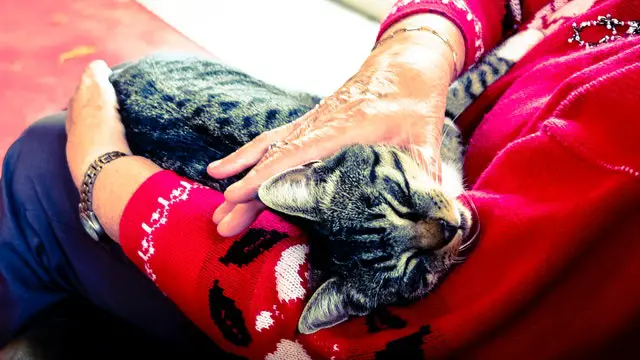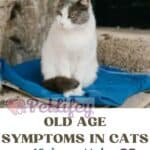
Old age can be a difficult phase for your kitty: here’s how to help an older cat live better and longer in health and well-being.
Cats are among the longest-lived pets, it is not uncommon for them to be able to live over 15 years with their human family: in general, it is said that a cat officially enters old age at the age of 10, however it is not then so unusual that my cat manages to reach her 20th birthday.
Advances in veterinary medicine and the ability to properly care for cats at all stages of their growth are key to having a long-lived and healthy senior cat: however, knowing how to help an older cat live through old age to the fullest. it is vital to make sure your kitten is happy and safe until the very end.
In this article you will find 10 tips to take care of your elderly cat in the most effective way possible : let’s find out together.
10 tips on how to help an older cat live better

1. Attention to nutrition: the diet of the elderly cat must be healthy, balanced, rich in antioxidants and above all able to provide the cat with the right hydration. So avoid kibble and give preference to wet food such as cans, but above all be careful that the cat takes the right amount of water every day.
2. Even if the cat gets tired more easily, during the old age phase it must still maintain the psychophysical stimuli necessary for its well-being: make sure that it does physical exercise and that it has toys suitable for its age, perhaps choosing among these exercises useful for the cat elderly.
3. Make sure your cat always has catnip available to chew: the effects of catnip on the elderly cat are excellent in detoxifying and relaxing the cat who often becomes more stressed with age. Ask your vet if you need to give your cat any supplements specific to their health condition.
4. Among the advice on how to help an elderly cat to live better old age there is also the daily intake of coconut oil: rich in MCT triglycerides, useful for improving the brain functions of the cat, a dose equal to 1 is recommended. / 4 teaspoon every 10 kg of weight twice a day.
5. Often cats going through the stages of old age tend to meow a lot more, not to mention cats that don’t let you sleep at night! A good idea is to get advice from your vet about taking a calming natural remedy, such as chamomile or melatonin.
6. If your cat seems increasingly disoriented and you are concerned that it may hurt itself by climbing into dangerous places in the house, consider closing doors to restrict its access to certain areas of the house.
7. Even if an elderly cat wants tranquility, this does not mean that he should always be alone: it is essential to dedicate time every day to interact with the cat, playing a little with him and making him cuddle. Take care of his coat by brushing it more often, because as he gets older he will have a hard time keeping himself clean.
8. If your cat has got into the bad habit of not sleeping at night, you can try to gently wake him from his daytime naps: if he keeps active during the day, it will be easier for him to sleep at night.
9. Older cats tend to meow a lot both day and night – the best way to calm them down is to let them hear your voice, which reassures them more than anything else. Try calling him softly when he starts crying, and if it becomes impossible to sleep at night, try asking your vet for information on homeopathic remedies suitable for cats.
10. If your senior cat has incontinence problems you can help him by putting some extra litter boxes in the house: sometimes the problem is in the difficulty in reaching the place to go to the toilet in good time. Also, make sure the litter box is located in an easy-to-reach location for your cat.






